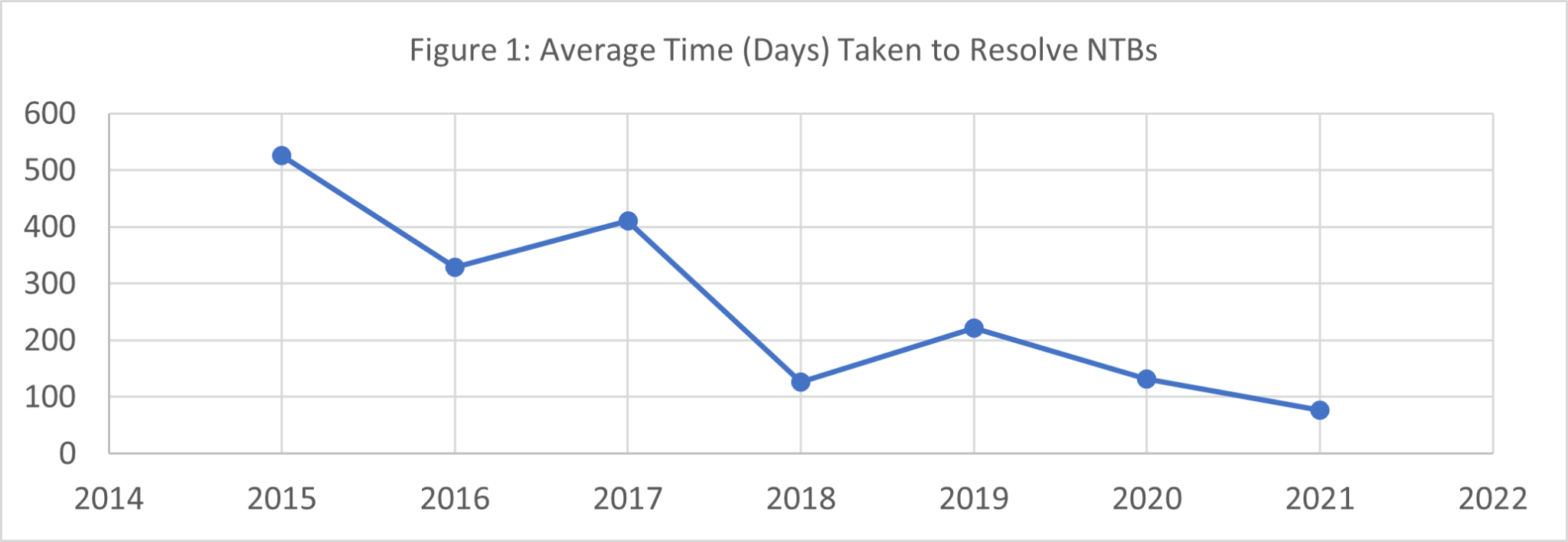
TradeMark East Africa has reaffirmed its commitment to elimination of Non-Tariff Barriers (NTBs) as part of its efforts to streamline trading among East African Community (EAC) partner states.
NTBs refer to restrictions that result from prohibitions, conditions, or specific market requirements that make importation or exportation of products difficult and/or costly.
NTBs also include unjustified and/or improper application of Non-Tariff Measures (NTMs) such as sanitary and phytosanitary (SPS) measures and other technical barriers to Trade (TBT).
Speaking to The Business Wiz in an exclusive interview yesterday, Monica Hangi, TradeMark East Africa Country Director for Tanzania said between 2005 to June this year, her organisation has facilitated reduction of up to 79 per cent of existing NTBs in Tanzania with other the EAC partner states.
“For Tanzania, during our September bilateral meeting with Kenya, we managed to resolve 12 out of 30 NTBs that had been presented. In March this year, we also managed to resolve 10 out of 25 NTBs that had been presented,” she added.

Hangi further noted that 22 NTBs were resolved with Kenya during the last financial year in 2021 while four out of nine NTBs were resolved for Uganda as tabled in January this year.
“I don’t think we will reach a point where we have zero NTBs across East Africa. Our overall goal is to ensure further reduction in NTBs to enhance trade amongst member states and we have already maked progress,” she said.
She added, “Issues for very sensitive products like sugar are taken to high bilateral meetings at state level where resolutions are made but this starts at national level. Some of these barriers to trade happen because of lack of awareness on certain policies and others because of political tension,”
Hangi said TradeMark designed a programme to eliminate NTBs and other trade barriers in Tanzania by improving NTB identification, registration, monitoring, reporting and elimination by the private sector and government institutions.
“At national level we have set up an SMS reporting system and a short code has been shared with all traders. If one is faced with a non-technical barrier, he only needs to send a message that goes direct to the Chamber of Commerce,” she added.
She commended President Samia Suluhu Hassan’s commitment to resolving of NTBs with EAC member states including Uganda and Kenya adding that her organization has enjoyed working with the Tanzanian Government since 2013.
“The Tanzanian Government has committed its self to ensure that the NTBs are reduced further,” she said.
The case of EAC
From 2004 to 2015, 114 NTBs had been reported and 27 were yet to be resolved translating to a resolution rate of 76.3 per cent.
To date more NTBs are being reported and being resolved within a short period as shown by the increased number of reported NTBs from 114 in 2015 to 257 in June 2022 and a resolution rate improvement from 76.3 per cent in 2015 to 94.9 per cent in June 2022.

Most of the outstanding NTBs are on discriminatory charges, fees and levies by Partner States, non-preferential treatment of goods originating from Partner States, non-recognition of calibration certificates from Partner States and requirement for upfront payment of guaranteed cheques for storage of oil and penalties after expiry of grace period.
Among the outstanding 12 NTBs, Tanzania has imposed 6, Uganda 5 and Kenya one while Kenya has reported 5, other EAC Partner States 3, Uganda 1, Tanzania 1, South Sudan 1 and Rwanda 1.
Timely resolution of NTBs led to a significant increase in exports and consequently an increase in intra-EAC trade. For example, after resolution of the NTB on non-preferential treatment for rice originating from Tanzania by Rwanda, rice exports from Tanzania to Rwanda increased in 2018 by 3.2 million Kgs and it has been increasing since then reaching 59 million Kgs in 2020 at a value of over $35 million.
Resolution of NTBs has led to improvement of the welfare of EAC citizens through directly increasing trade and revenues which led to employment creation and indirectly increase in household incomes for the traders and consequently improved livelihoods.







